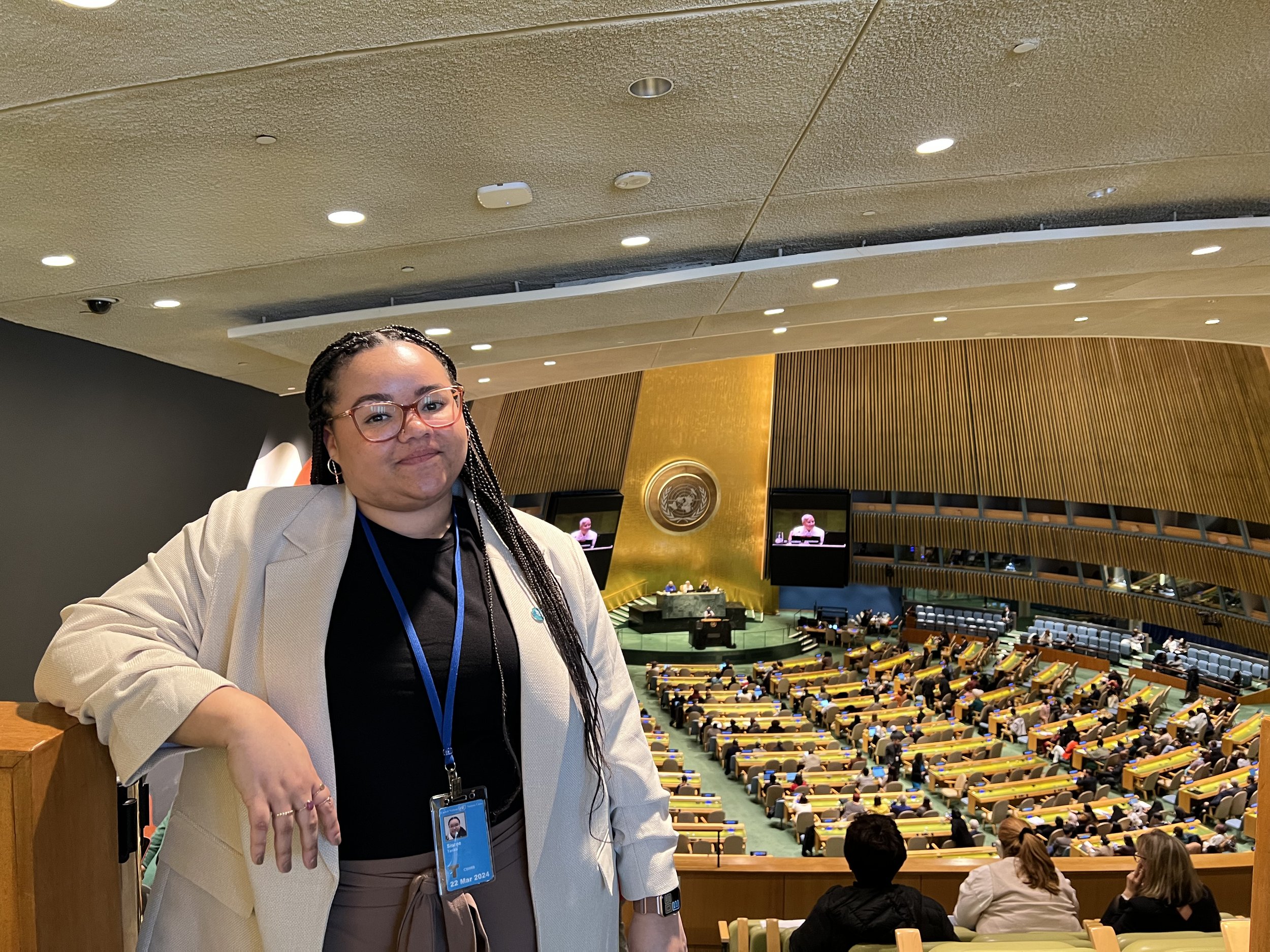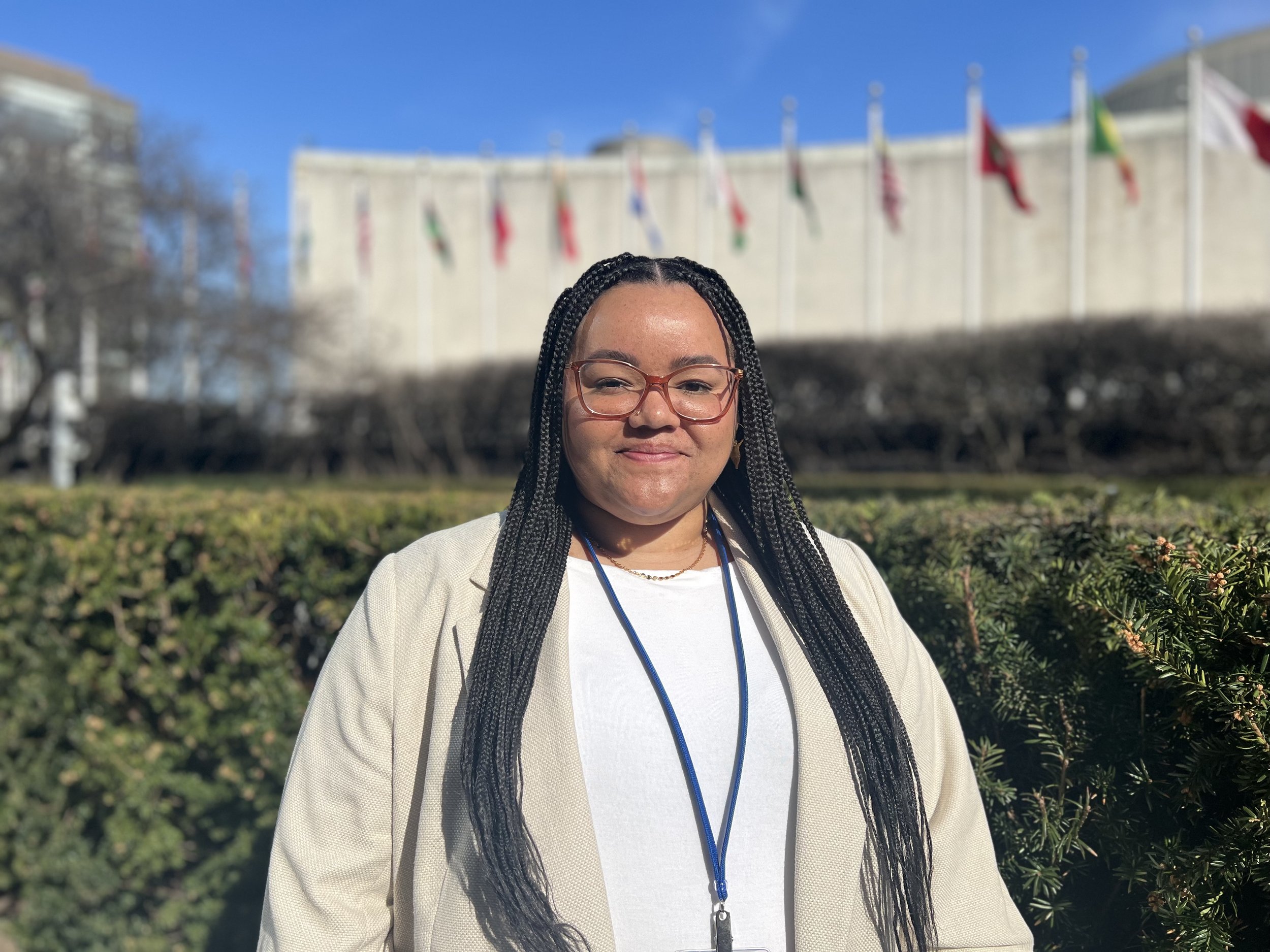Locally Led, Globally Connected: Reflections from UNCSW68 by Tanika Siscoe
As leaders and activists from around the globe convened at the 68th United Nations Commission on the Status of Women (UNCSW68) in New York, YWCA Clark County was proudly represented by Tanika Siscoe, Director of Prevention. This annual session is a focal point for discussing global gender equality and women's empowerment, tackling a range of critical issues—from poverty alleviation to institutional reforms.
The following is Tanika’s firsthand account of her time at UNCSW68, reflecting her personal observations and the collective spirit of a movement striving for a fair and equitable world.
This was a profound experience that has left an indelible mark on my perspective and approach to gender equality and women's empowerment. This year’s session aimed to accelerate progress toward gender equality and the empowerment of all women and girls, addressing key issues such as poverty, institutional strengthening, and financing with a gender perspective.
I am deeply honored and grateful to have been selected as a delegate representing YWCA Clark County at this event. It was a privilege to join other YWCA delegates, representatives from Member States, UN entities, and NGOs worldwide to engage in discussions, workshops, and initiatives aimed at advancing gender equality globally.
Throughout UNCSW68, I had the opportunity to attend various workshops that provided invaluable insights into the work being done around the world to advocate for gender equality and the empowerment of women and girls. One of the main themes that I noticed in the sessions I attended was around the idea of locally led and globally connected. This theme resonated deeply with me. It encapsulates the essence of uplifting grassroots movements and projects initiated by local communities for their communities while also emphasizing the importance of staying connected globally to organize, share strategies, and build a unified movement toward gender equality and a world free from violence.
One such session that demonstrated the theme of locally led and globally connected was hosted by World YWCA. This workshop, "Dollars and Change: Investing in Grassroots Women for Social Transformation," highlighted the importance of feminist funding practices in supporting grassroots women-led projects. It emphasized the need for meaningful partnerships between funders and recipients to ensure that funding requirements and applications align with feminist strategies, enabling women-led grassroots projects to address the specific needs of their communities effectively.
Another workshop, "Let's Talk Prisons, Bodies, and Poverty: What does carcerality mean for intersectional feminists?" shed light on the challenges faced by survivor defendants, particularly regarding coercive control. The session discussed the challenges survivor defendants face and how coercive control can't be used as a defense for survivor defendants in Canada. This workshop also discussed how Canada, with support from all political parties, is looking at criminalizing coercive control. The workshop presenters who work with survivors are deeply concerned about how increased criminalization and widening of the net will impact survivors and lead to more survivor defendants. This session underscored the importance of intersectional feminism in addressing systemic issues within the criminal justice system.
I also had the privilege of learning about a pilot project in Nigeria focused on educating deaf women about their sexual and reproductive health rights. This initiative emphasized the importance of holistic community support and engagement, including working with healthcare practitioners and traditional leaders to center disability justice and support women's access to reproductive healthcare. It was a great conversation about engaging the whole community and implementing prevention at all levels to prevent gender-based violence and ensure all women have access to reproductive health care.
Furthermore, the workshop on "Engaging Men in Challenging Social Norms/Systems for Gender Justice" highlighted the crucial role of engaging men and boys in violence prevention. This workshop highlighted three different programs around the world that center on working with men and boys to prevent gender-based violence. It emphasized the need to use culture as a tool for shifting norms and the importance of engaging parents and young adults in these efforts. A lot of the programming began with shifting boys' perspectives around care work and household work from “women only” work to work that all people need to participate in as it is a necessary part of life to deeper conversations around healthy and respectful relationships.
As I reflect on my time at UNCSW68, I am eager to bring back the knowledge and strategies I learned to our community in Clark County. It is essential that our prevention programs are informed by global practices while being grounded in the needs and realities of our local community. By staying globally connected and fostering collaboration, we can work together to create meaningful change and advance gender justice for all.
My experience at UNCSW68 has reinforced my belief in the power of grassroots movements and the importance of global solidarity in the fight for gender equality. I am committed to continuing this work in our community and beyond, ensuring that our efforts are truly locally led and globally connected.
- Tanika Siscoe, Director of Prevention



